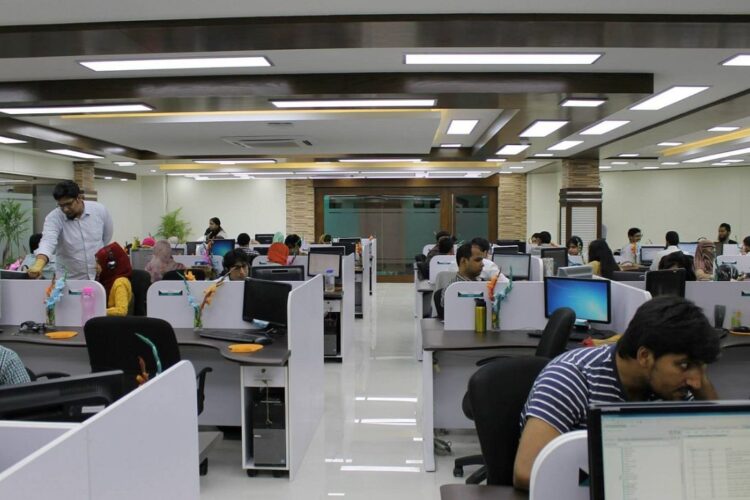
Introduction
Bespoke software development refers to the process of creating tailor-made software solutions specifically designed to meet the unique requirements of a particular business or organization. Unlike off-the-shelf software, which offers generic solutions for many users, bespoke software is customized to address specific needs, providing greater flexibility and efficiency.
Understanding Bespoke Software
Bespoke software stands out for its personalized approach. It’s crafted from scratch, ensuring that every aspect aligns perfectly with the client’s goals and processes. This tailored approach results in software seamlessly fitting into existing workflows, enhancing productivity and performance. Moreover, bespoke software offers scalability, allowing for future modifications and updates as business needs evolve.
Bespoke Software vs. Off-the-Shelf
When considering bespoke software vs. off-the-shelf solutions, the key difference lies in customization. While off-the-shelf software provides pre-built solutions that may require customization to fit specific requirements, bespoke software is developed entirely from scratch, offering unparalleled customization and integration capabilities.
Key Stages in Bespoke Development
The bespoke software development process typically involves several key stages:
Planning:
At this stage, thorough analysis and requirement gathering are conducted to define project scope, objectives, and deliverables.
Design:
Designers create a blueprint of the software, outlining its architecture, user interface, and functionalities based on client requirements.
Development:
Developers then bring the design to life, writing code and integrating various components to build the software solution.
Testing:
Comprehensive testing identifies and rectifies bugs or issues, ensuring the software functions smoothly and meets quality standards.
Deployment:
Once testing is complete, the software is deployed in the client’s environment and ready for use.
Bespoke Software in Industries
Bespoke software finds applications across various industries, including:
Healthcare:
In the healthcare sector, bespoke software manages patient records, streamlines administrative tasks, and facilitates telemedicine services.
Finance:
Financial institutions leverage bespoke software for risk management, trading platforms, and customized banking solutions tailored to their unique requirements.
Manufacturing:
Bespoke software optimizes production processes, inventory management, and supply chain logistics in manufacturing, enhancing operational efficiency and productivity.
Challenges in Bespoke Development
While bespoke software offers numerous benefits, it also presents some challenges, including:
Costs:
Developing bespoke software can be more expensive than purchasing off-the-shelf solutions, primarily due to the extensive customization involved.
Time:
The bespoke development process may take longer, requiring thorough planning, design, and development phases to ensure a tailored solution.
Maintenance:
Maintaining and updating bespoke software over time may require additional resources and expertise to address evolving business needs and technological advancements.
Choosing a Bespoke Software Vendor
Selecting the right vendor is crucial for successful bespoke software development. Factors to consider include:
- Vendor experience and expertise in the relevant industry
- Track record of delivering successful bespoke projects
- Ability to understand and align with the client’s vision and requirements
- Transparency in communication and project management
Future Trends in Bespoke Software
The future of bespoke software development is marked by emerging technologies and innovative approaches, including:
- AI Integration: Leveraging artificial intelligence and machine learning to enhance software functionality, automation, and decision-making capabilities.
- Blockchain Technology: Implementing blockchain solutions for enhanced security, transparency, and decentralized data management in bespoke software applications.
The Role of Bespoke Software Development in Business Growth
In today’s competitive landscape, businesses must leverage technology to stay ahead. Bespoke software development drives innovation, efficiency, and growth across various industries.
Enhanced Efficiency and Productivity:
Bespoke software is tailored to streamline specific business processes, eliminating inefficiencies and redundant tasks. Businesses can optimize productivity and resource utilization by automating repetitive workflows and integrating disparate systems.
Customized Solutions for Unique Needs:
Off-the-shelf software may offer generic solutions, but they often need to catch up when it comes to addressing the unique requirements of businesses. On the other hand, Bespoke software is designed from the ground up to align perfectly with the client’s workflows, resulting in a more intuitive and user-friendly experience.
Scalability and Adaptability:
As businesses evolve and grow, their software needs evolve as well. Bespoke software offers scalability, allowing for seamless expansion and modification as business requirements change. Whether adding new features, integrating third-party services, or accommodating increased user loads, bespoke software can adapt to meet evolving demands.
Competitive Advantage:
Innovation is key to maintaining a competitive edge in today’s fast-paced market. Bespoke software allows businesses to innovate rapidly, responding to market trends and customer feedback with agility. Staying ahead of the curve allows businesses to differentiate themselves from competitors and capture new growth opportunities.
Data-driven Decision Making:
Bespoke software enables businesses to collect and analyze data more effectively, empowering informed decision-making. By leveraging advanced analytics and reporting capabilities, businesses can gain valuable insights into their operations, customer behavior, and market trends, enabling them to make strategic decisions that drive growth and profitability.
Embracing the Power of Bespoke Software
Bespoke software development offers a tailored approach to addressing businesses’ unique needs and challenges across various industries. By leveraging customized solutions designed specifically to align with their workflows, businesses can enhance efficiency, drive innovation, and achieve sustainable growth in today’s dynamic market landscape. With the right software partner and a strategic approach to development, businesses can unlock the full potential of bespoke software to transform their operations and stay ahead of the competition.
Implementing Bespoke Software: Best Practices and Considerations
While bespoke software development offers numerous benefits, carefully planning and considering the process is essential. Here are some best practices and key considerations to keep in mind:
Clear Communication and Collaboration:
Effective communication between stakeholders, including business owners, developers, and end-users, is critical for the success of bespoke software projects. Establishing clear requirements, expectations, and milestones from the outset helps ensure that the final product aligns with the client’s vision and objectives.
Agile Development Methodology:
Adopting an agile development approach allows for iterative development, enabling stakeholders to provide feedback and make adjustments throughout the project lifecycle. This iterative process ensures that the software evolves in response to changing requirements and market conditions, resulting in a more tailored and user-centric solution.
Robust Testing and Quality Assurance:
Thorough testing and quality assurance are essential to identify and address bugs or issues before deploying the software in a production environment. Rigorous testing procedures, including unit testing, integration testing, and user acceptance testing, help ensure that the software functions as intended and meets quality standards.
Scalability and Future-proofing:
Designing bespoke software with scalability in mind ensures that it can accommodate future growth and expansion without requiring significant rework or redevelopment. Scalable architectures, modular design principles, and flexible deployment options enable businesses to adapt and evolve their software systems as their needs evolve.
Security and Compliance:
Security should be a top priority when developing bespoke software, especially for industries that handle sensitive data or must comply with regulatory requirements. Implementing robust security measures, such as encryption, access controls, and regular security audits, helps safeguard against data breaches and ensure compliance with relevant regulations.
Continuous Maintenance and Support:
Once the bespoke software is deployed, ongoing maintenance and support are essential to address any issues that may arise and ensure the software remains up-to-date and compatible with evolving technologies. Providing timely updates, patches, and technical support services helps optimize the performance and longevity of the software solution.
The Future of Bespoke Software Development: Emerging Trends and Innovations
As technology advances rapidly, the future of bespoke software development holds exciting possibilities. Here are some emerging trends and innovations shaping the future of bespoke software:
AI Integration:
Artificial intelligence (AI) revolutionizes bespoke software development by enabling intelligent automation, predictive analytics, and natural language processing capabilities. AI-powered solutions can analyze vast amounts of data, automate repetitive tasks, and provide valuable insights to enhance decision-making and user experiences.
Blockchain Technology:
Blockchain technology transforms bespoke software development by offering enhanced security, transparency, and decentralization. Blockchain-based solutions can secure sensitive data, streamline transactions, and enable tamper-proof record-keeping, making them ideal for supply chain management, identity verification, and financial transactions.
Internet of Things (IoT) Integration:
The Internet of Things (IoT) drives innovation in bespoke software development by connecting devices, sensors, and systems to collect and exchange data in real time. IoT-enabled solutions can optimize processes, improve efficiency, and enable new business models across various industries, from smart manufacturing and logistics to healthcare and agriculture.
Edge Computing:
Edge computing is reshaping bespoke software development by decentralizing data processing and storage to the network edge, closer to where data is generated and consumed. Edge computing enables low-latency, high-performance applications that require real-time processing and decision-making, such as autonomous vehicles, industrial automation, and augmented reality.
Cloud-Native Architectures:
Cloud-native architectures are revolutionizing bespoke software development by leveraging cloud computing technologies and microservices architecture to build scalable, resilient, and flexible applications. Cloud-native solutions enable rapid deployment, seamless scalability, and continuous delivery, empowering businesses to innovate faster and respond to market changes more effectively.
Embracing Innovation in Bespoke Software Development
The future of bespoke software development is driven by innovation, leveraging emerging technologies such as AI, blockchain, IoT, edge computing, and cloud-native architectures to create intelligent, secure, and scalable solutions tailored to businesses’ unique needs across various industries. By embracing these trends and innovations, businesses can unlock new opportunities for growth, efficiency, and competitiveness in today’s digital era.
Conclusion
Bespoke software development offers tailored solutions to address unique business challenges and requirements, providing unmatched flexibility, scalability, and efficiency. By understanding the key stages, challenges, and future trends in bespoke development, organizations can make informed decisions to harness the full potential of customized software solutions.
FAQs:
How long does bespoke software development take?
Bespoke software development timelines can vary depending on project complexity and scope but typically range from several months to a year or more.
What are the advantages of bespoke software over off-the-shelf solutions?
Bespoke software offers greater customization, scalability, and integration capabilities, ensuring it aligns perfectly with the client’s unique requirements and business processes.
Is bespoke software more expensive than off-the-shelf solutions?
Yes, bespoke software development can be more expensive upfront due to the customization involved, but it offers long-term cost savings and ROI by addressing specific business needs more effectively.
Can bespoke software be updated or modified in the future?
One of the key advantages of bespoke software is its flexibility for future updates and modifications to adapt to evolving business requirements and technological advancements.
What industries benefit most from bespoke software development?
Industries such as healthcare, finance, manufacturing, and logistics benefit significantly from bespoke software tailored to their specific operational needs and regulatory requirements.
How important is choosing the right software vendor for bespoke development?
Choosing the right software vendor is critical for the success of bespoke projects, as it ensures alignment with the client’s vision, expertise in relevant industries, and effective communication and project management.



